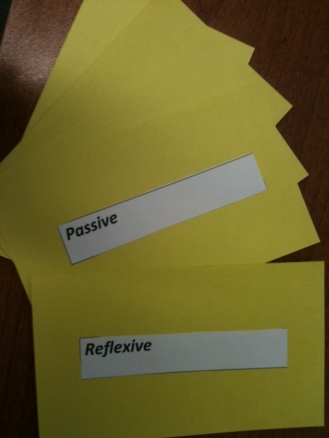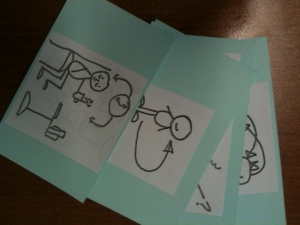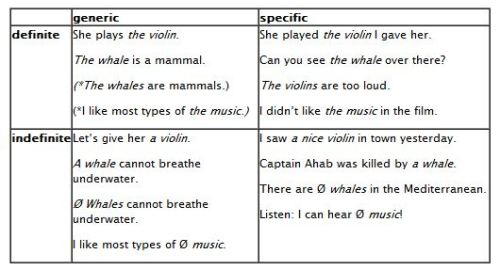Discussing Discussion
by lslisz
When I did my practicum in the ESL program last spring, I wrote in my reflection journal about the overwhelming amount of student discussion that occurred during class. Having mostly taught Japanese students in the past, I was caught off guard by the amount of speaking that occurred in class and by how willing the students were to speak in general. I am used to encouraging students to speak (and usually successful in getting them to do so), but I realized during my practicum that I had little experience guiding a full fledged discussion in which everyone was already actively participating.
This is on my mind now as I’ve been teaching Japanese university students in the Shimane program. Classroom discussions don’t involve much “discussion” at all. Instead, a student usually says something about the topic at hand, and then another student will verbalize their own, often unrelated thought (after I call on them by name and volunteer them to speak).
However, when the students work and speak English in small groups, the things they say are often reactions to each others’ thoughts, not the isolated statements that usually appear in plenary discussion. In fact, during Panel Discussion class last week (in which other English speakers come in to talk to the students in small groups), there seemed to be a lot of actual conversations happening between the panelists and students. I think the reasons for the increased English communication/interaction in these small group situations are pretty clear. The students were clearly excited to be talking to the panelists, and were inspired to speak. Additionally, since the students were working together in these conversations they could often (with the use of Japanese) help each other in saying what they wanted to say in English. The pressure to only speak English (which I think they feel obligated to do when speaking in front of the class), simply isn’t there during small group work, ironically resulting in more English being spoken.
This has me slightly worried, as next week I will be teaching a unit on gardening and native plants. I am a little concerned about my ability to get the students excited enough about these topics to spontaneously speak about them, especially since there’s is a high risk of overwhelming them with new vocabulary and topics that I only have a few days to cover/uncover. Luckily, I’ve found some great resources on my content topics that I think I’ll be able to use in class, and I have some ideas of how keep things entertaining. I’ll be sure to write more next week after teaching a few lessons and trying some of these activities out.










